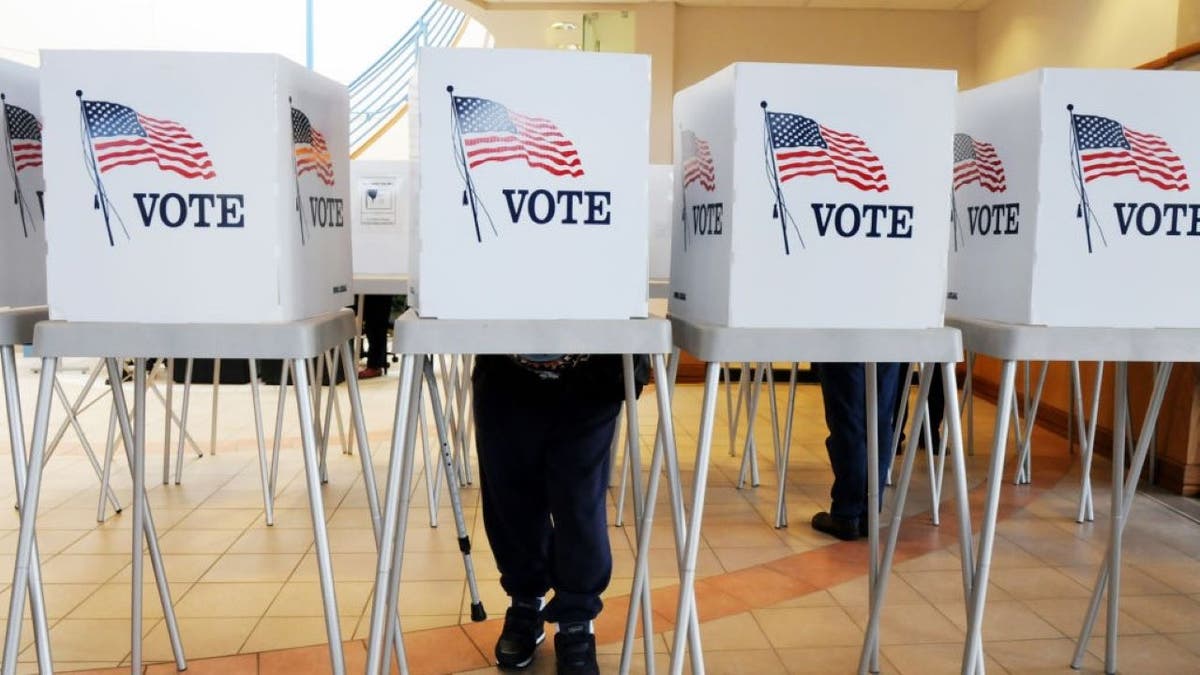Shortly after the Justice Department objected to, and a federal judge blocked Virginia from removing thousands of ineligible voters from its rolls, a conservative good-government group announced a lawsuit to compel document production from a similar case in the home state of Gov. Tim Walz, the Democratic vice presidential nominee.
While attorneys for the Heritage Foundation’s Oversight Project said they are chiefly pursuing the documents as a matter of public interest and following a similar request from the Republican National Committee, the parallels between Virginia and Minnesota’s cases cannot be ignored.
The Oversight Project’s lawsuit seeks to compel Minnesota’s Department of State and Department of Public Safety to produce records related to voter roll maintenance.
In September, the public safety department informed lawmakers it had worked with the state department to inactivate 1,000 voters during a manual review of 104,000 total Minnesotans.
DOJ PREVIOUSLY PRE-CLEARED LAW AT CENTER OF YOUNGKIN VOTER ROLL CULLING ORDER

Election officials have several booths available for early voting. (Getty)
After Virginia Gov. Glenn Youngkin signed an order laying out the culling of essentially self-identified ineligible voters under a 2006 law from then-Democratic Gov. Timothy Kaine, the feds balked and Biden-appointed Judge Patricia Tolliver Giles ordered the reinstatement of all voters removed from the rolls under the order.
On Sunday, the Fourth Circuit upheld the ruling and officials in Richmond signaled they wanted the Supreme Court to weigh in.
“Let’s be clear about what just happened: only 11 days before a presidential election, a federal judge ordered Virginia to reinstate over 1,500 individuals – who self-identified themselves as noncitizens – back onto the voter rolls,” Youngkin said in a statement Friday.
Comparing his case to the situation in Richmond, Oversight Project chief counsel Kyle Brosnan said that while the “Biden-Harris administration has brought ridiculous lawsuits against Alabama and Virginia for their voter roll maintenance efforts, which removed thousands of noncitizens from the voter rolls, the Justice Department is curiously uninterested in Minnesota’s voter roll maintenance efforts. We will continue fighting for transparency on this important election integrity issue.”
Brosnan added that Minnesota had not responded to its original request via the state version of the federal FOIA statute, prompting legal action.
Asked about the NVRA exception given to Minnesota and other states, there are still multiple other reasons why the public should be apprised of the communications behind the Minnesota case, including the overall issue of proper voter roll maintenance.
“At the core of it, you still have the Justice Department bringing an action against a state like Virginia that removes noncitizens from its ballot. And you have here a situation where noncitizens were potentially automatically registered to vote through the DMV in Minnesota.
“You can find a statutory provision to prevent noncitizens from voting.”
Additionally, Brosnan said an automatic registration provision at the state DMV likely led to these ineligible voters being added to the rolls in the first place – prompting public interest in the situation regardless of its comparisons with Virginia’s controversy.
“These offices had brought to the secretary of state’s office’s attention that noncitizens were automatically registered through the DMV… and we filed an open-records request to get the actual number and look at why that occurred.”
“You have this in the context of a wide-open border with 10 million illegal aliens flowing through under the current administration,” adding that Virginia’s case is proof that many ineligible voters are able to “slip through the cracks” of the safeguards to the voter registration process.
In a 2023 interview following Walz’s signing of the “Democracy for the People Act,” Secretary of State Steve Simon spoke to Minnesota’s MPR News about the law and was asked about the risk of “undocumented people” ending up on the rolls.
“It’s a very sensible question,” the Democratic official said, explaining the Department of Public Safety has experience in the field, and that, “what that means is that no one will even be put in the pile that could possibly be automatically registered.”
“You won’t even go into that pile, unless there has been some demonstration of U.S. citizenship.”
Brosnan, joined by attorney Neal Cornett, added of the Virginia case that the Justice Department – as any other observer – should find the idea of removing ineligible voters a good thing in terms of “sanctity of the ballot.”
While Virginia has gone Democratic in federal elections, geographically, it is a 500-plus mile expanse of relatively conservative areas emanating from Democratic strongholds in Arlington-Fairfax, Norfolk, Winchester, Roanoke and Richmond.
Brosnan noted that, in September, an RNC official sought information from Simon’s office about its Automatic Voter Registration (AVR) system.
The general counsels for Simon’s office and that of the Department of Public Safety responded in a letter obtained by Fox News Digital in which they said individuals may only be registered through AVR if they had provided “citizenship-affirming documentation” at the time of their DMV registration. The process appears similar in Virginia.
CLICK HERE TO GET THE FOX NEWS APP
The letter said the state completed a manual review of 103,986 records on Sept. 10 and that 1,485 records “that should not have been sent… to be registered through AVR.”
“This is either because their documentation was unreadable due to poor scanning quality, missing required information, mislabel[ing] as citizenship-affirming when it was not or unable to be validated for other reasons.”
The attorneys wrote that the only statewide election to be conducted under the law was the August 2024 primary, where the secretary of state’s office found no evidence of an ineligible person voting.
Simon’s office did not respond to a request for comment on the lawsuit.